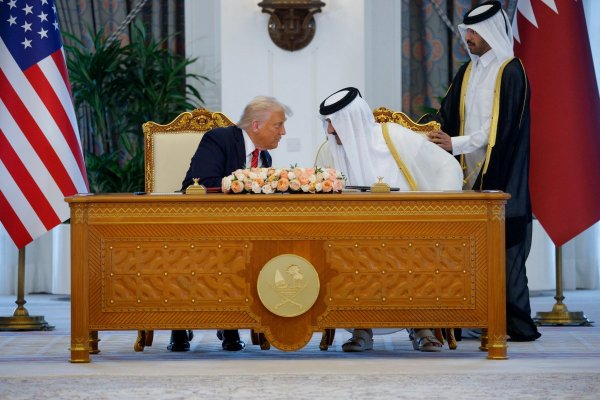Conexión a China | Cuidado con el “negocio redondo”
Martin Gonzalez Solar Abogado LLM, master en derecho Universidad de Tsinghua; Socio Director GS&Co.
Al limpiar correos electrónicos antiguos me encontré con varios interesantes, y hay uno referente a derechos de propiedad industrial que puede ser de interés para quienes estén con el impulso de fabricar en China o ya lo hayan hecho.
Una empresa chilena (en adelante la PYME chilena), me comenta que hizo un arduo trabajo de ingeniería y diseño, desarrollando un producto innovador que podría ser comercializado internacionalmente. Decidieron encargar su producción a una fábrica en China con experiencia en la industria y clientes internacionales que pudiesen estar interesados en este nuevo producto. La fábrica china aceptó fabricarlo, y además se ofreció a venderlo y distribuirlo a diferentes clientes alrededor del mundo, pagando un royalty a la PYME chilena.

Esta empresa pensaba que el negocio era redondo: se le abría la posibilidad de fabricar, con un alto nivel de ingeniería y en volúmenes importantes, un producto a bajo costo; además podrían aprovechar las capacidades de comercialización y distribución de la fábrica china en el resto del mundo. Por su parte, la fábrica ganaba un nuevo cliente y sumaba un producto a su línea de producción. Ambas ganaban.
Ahora bien, visto con más detalle, el negocio no era tan redondo para la PYME chilena. Primero, el producto no estaba patentado a su nombre, y el fabricante chino ya contaba con dibujos técnicos y una muestra terminada que había sido enviada desde Chile. Además, los delegados de la fábrica habían visitado la PYME en Chile y conocían el proceso productivo. Segundo, las partes tampoco celebraron un Memorando de Entendimiento o Acuerdo de Confidencialidad que indicase una convergencia clara de intenciones, u otro contrato vinculante que pudiera exigir derechos y obligaciones recíprocas en caso de incumplimiento. El acuerdo no tenía estructura legal.
En esta zona desértica, la posibilidad de probar a futuro que la autoría del producto pertenecía a la PYME chilena era poco viable. De ahí la pregunta obvia: ¿qué interés podría tener la fábrica china en la elaboración exclusiva del producto para la empresa chilena, cuando por sí misma podía fabricarlo, venderlo y distribuirlo bajo su propia autoría y marca, y además percibir todo el beneficio? Desde esta lógica, la PYME chilena quedaba fuera del negocio al haber entregado gratuitamente a la fábrica china los diseños, transformándose esta última en una competidora, pudiendo gozar incluso de la titularidad de la patente.
China es un país con una cultura profunda, con un ecosistema comercial y legal dinámico y complejo, para muchos difícil de comprender. Por esto mismo, es necesario tomar los resguardos que se aplican en cualquier otra parte del mundo. Si situaciones como estas ocurrieron en Estados Unidos entre gigantes como XEROX, APPLE Y MICROSOFT, ¿por qué no entre empresas chilenas y fábricas chinas? Cuando esté frente a un negocio redondo, piense también cómo prevenir el fracaso.
Beware the "sweet deal"
I was discarding old emails when I came across several interesting ones. There was one concerning industrial property rights that may be of interest to those who are looking to manufacture in China or have already done so.
A Chilean company (the SME), tells me that it did a tough job of engineering and design, developing an innovative product that could be marketed internationally. They decided to order its production from a factory in China with experience in the industry and with international clients who might be interested in this new product. The Chinese factory agreed to manufacture it, and also offered to sell it and distribute it to different customers around the world, paying a royalty to the SME.
The Chilean company felt the deal could not be sweeter: it opened the possibility of manufacturing at low cost a product with a high level of engineering and in significant numbers; they could also take advantage of the marketing and distribution capacities of the Chinese factory in the rest of the world. In turn, the factory gained a new customer and added a product to its production line. Both won.
But on closer inspection, the deal was not so good for the SME after all. First, the product was not patented in their name, and the Chinese manufacturer already had technical drawings and a finished sample that had been sent from Chile. In addition, the factory delegates had visited the SME in Chile and were already familiar with the production process. Second, the parties had not signed a Memorandum of Understanding or Confidentiality Agreement indicating a clear convergence of intentions, or any other binding contract that might require reciprocal rights and obligations in case of breach. The agreement, in short, had no legal structure.
In this muddled area, the possibility of proving in the future that the authorship of the product belonged to the Chilean SME was low. Hence the obvious question: what interest could the Chinese factory have in making the product exclusively for the Chilean company, when it could manufacture it, sell it and distribute it under its own authorship and brand name, and also receive the full profit? Under this logic, the Chilean SME was put out of business, as it had handed over the designs to the Chinese factory free of charge, transforming the latter into a competitor who could even take advantage from owning the patent.
China is a country with a deep culture, with a dynamic and complex commercial and legal ecosystem which for many is difficult to understand. This is why it is necessary to have the safeguards that apply elsewhere in the world. If in the past cases like this one happened in the United States between giants like XEROX, Apple and Microsoft, why not between Chilean companies and Chinese factories? When you're presented with a deal that seems too sweet to be true, you'd better think about how to prevent failure.
By Martin Gonzalez Solar
Lawyer LLM, Managing Partner AT GS&Co


 Instagram
Instagram Facebook
Facebook LinkedIn
LinkedIn YouTube
YouTube TikTok
TikTok















